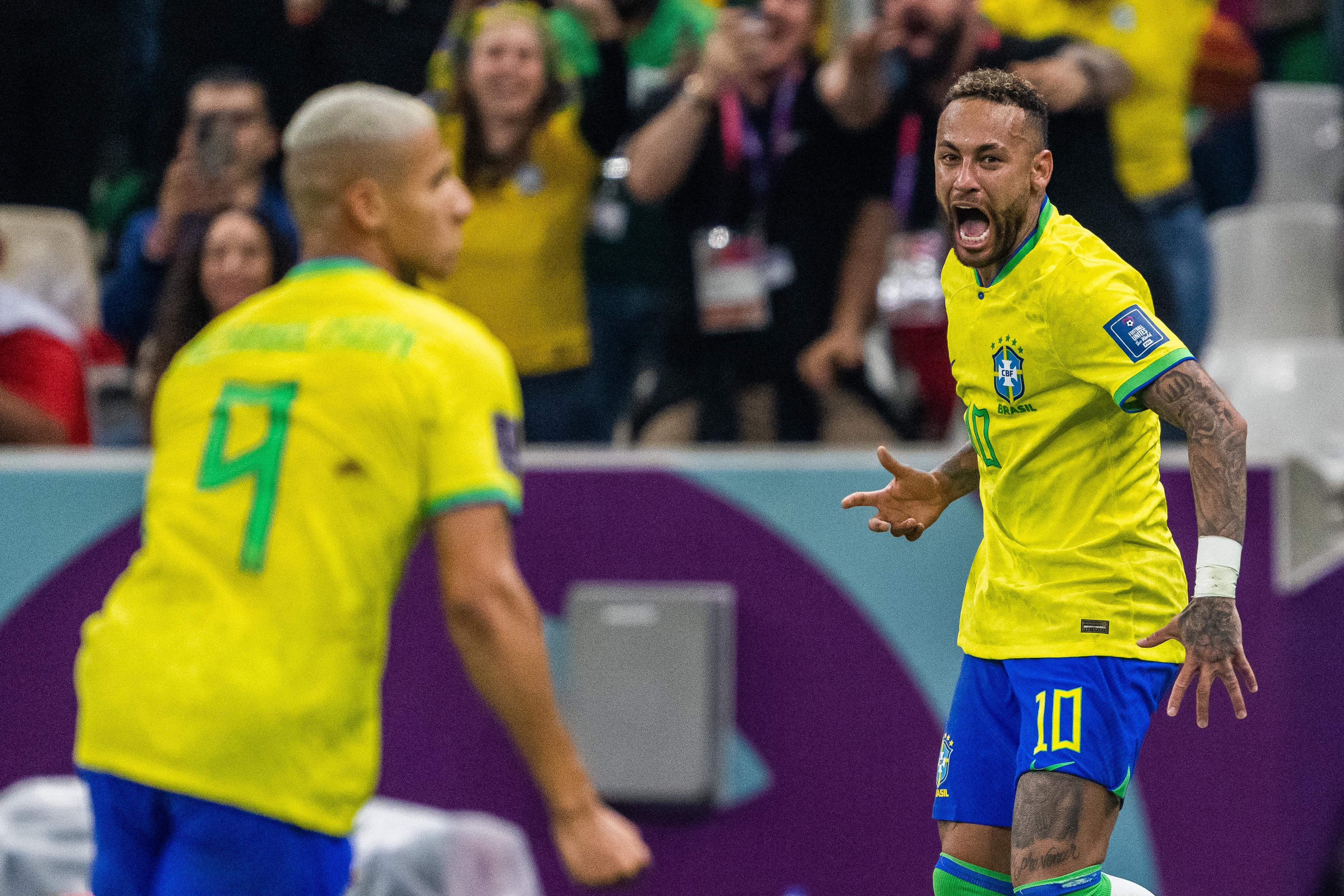When five-time winner Brazil takes the stage in its first World Cup knockout-stage match against big surprise South Korea on Monday, most Brazilians will put political divisions aside to unite behind the national soccer team in its quest to win another trophy in Qatar. But not all.
In a country where soccer is followed like a religion, the squad has become yet another flash point for political polarization amid the fallout from the recent presidential election. On one side are the diehard torcida (supporters) of outgoing far-right President Jair Bolsonaro, who campaigned for re-election wearing the team's first-choice canarinha (canary yellow) shirt.
On the other side are the fans of left-wing President-elect Luiz Inácio Lula da Silva, who accuse the Bolsonaristas of co-opting the color yellow and now proudly go in blue — Brazil’s second kit — to cheer for the country. In other words, these days the color of the shirt you wear to support the national squad shows whether you’re for Bolsonaro or Lula.
(Some) players have picked a side. In the run-up to the presidential vote, mega-star Neymar shocked many by endorsing Bolsonaro to his 188 million Instagram followers. That gesture made many fans sour on the world's most expensive player, who got injured in the opening game and hopes to return against the South Koreans. Neymar's response to his haters: I want to win the World Cup and dedicate it to the president.
But the PSG striker is at political odds with two big names: Richarlison, Brazil's top scorer so far, and Tite, the coach.
Richarlison — who gives Signal writer Alex Kliment strong Blade Runner vibes — has been outspoken about promoting the COVID vaccines that Bolsonaro famously hates. Meanwhile, Tite has been publicly coy about his politics but the Bolsonaristas suspect he's a leftist because he’s given the president the cold shoulder and used to manage Corinthians, a São Paulo club with a rich history of backing progressive politics.
It's not the first time the World Cup team has gotten mixed up in divisive Brazilian politics. Before winning the Mexico '70 edition led by O Rei (King) Pelé, the democratic opposition accused the players of being puppets of the military junta running the country at the time. And in Spain '82, captain Sócrates trolled the generals by wearing a pro-democracy headband. He later went on to found a democratic movement at Corinthians and left Brazil to play in Italy until the military agreed to step down.
More recently, Tite snubbed the sitting president when the latter tried to take credit for Brazil's victory in the 2019 Copa América, and then again for hosting the 2021 edition in the middle of a pandemic. The coach says that if the canarinha wins its much-awaited O hexa (sixth World Cup) in Qatar, he won't go to Brasília to present the trophy to Bolsonaro.
The next enemy wears ... red. Will facing the South Koreans, a team that plays in the color of Communism — and Lula’s own Workers’ Party — make Bolsonaro fans even more fervent in their support of the national soccer team? As long as Brazil wins, rest assured that (almost) everyone will be overjoyed and samba all night long.This comes to you from the Signal newsletter team of GZERO Media. Sign up today.
